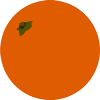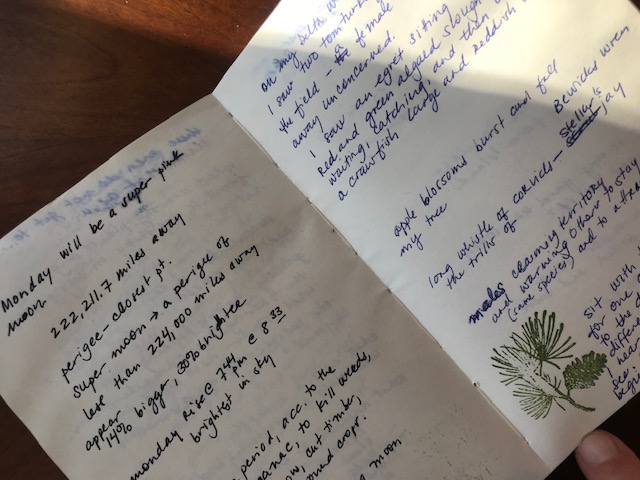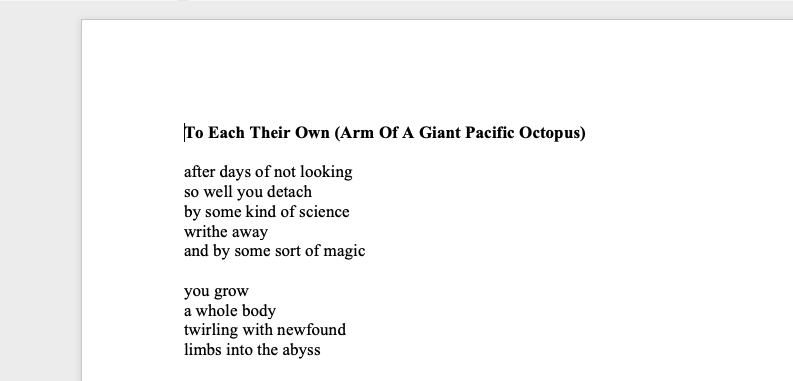Inter-
Heather Bourbeau
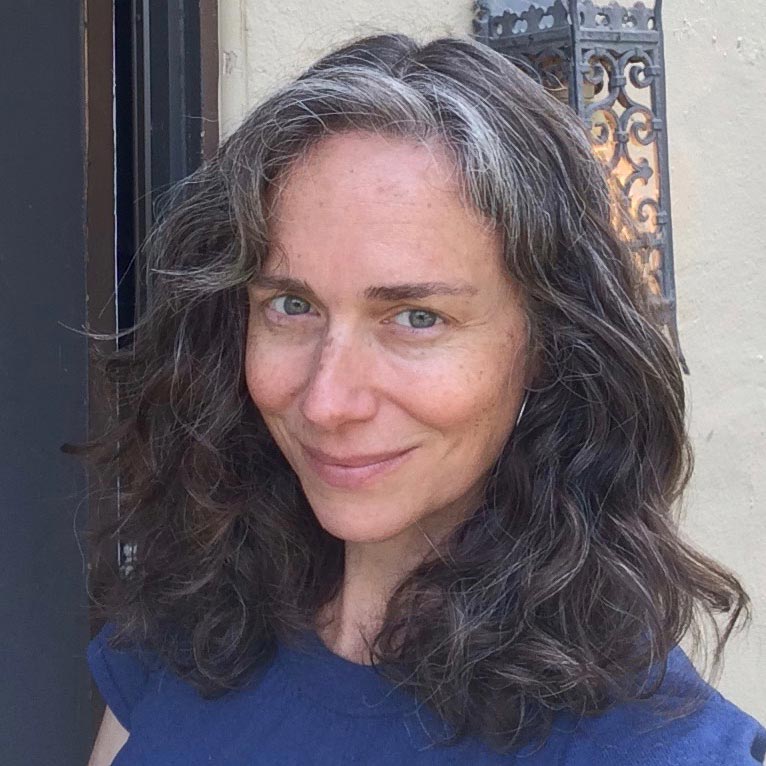
On Practice:
Do you write at the same time every day, in the same place? How would you describe your writing practice/s?
I go through periods in which I have a daily routine. For the past several years, I have been a member of two writing groups, one of which meets weekly to just write, not workshop. One of the odd upsides of the pandemic was the creation of a twice weekly 7 a.m. writing practice over Zoom with two friends. I also have friends, such as the poet Maw Shein Win, whom I can call for an impromptu writing date. We will give each other a prompt, or not, and set a time limit, say 30 minutes. At the end of that time period, we call each other back, share, and sometimes workshop what we wrote.
What do you do if you get stuck while writing a poem?
Look up. Breathe. Pick a rabbit hole to explore. Go for a walk. Call one of two people I trust to give me honest feedback on a poem. Rinse. Repeat.
Take a photograph of a page from your notebook or a screenshot of an electronic file of a poem you have been recently writing or revising.
On Poetry:
Is there something you once believed about poetry that you no longer hold true? What changed?
When I young, I thought I needed to be “inspired” to write. Now I know that even a few notes here or there in a notebook can become something powerful just by showing up and writing.
What can/does poetry change?
Poetry can show connections and patterns that might otherwise be missed, and it generally does this in a wonderfully concise way. By shining a light on these connections, poetry can open minds and be a call to action. If it weren’t, regimes wouldn’t go after the poets first.
Is there something you now think you know about poetry that you wish you’d known a decade ago?
I believe in persistence more as I age. I aim for over 100 rejections each year, and if I truly believe in a poem, I will keep submitting it. I have had work rejected 50+ times only for it to win an award or get published in a top-tier journal. I no longer take a rejection as necessarily a statement on the quality of my writing. It may just not be a good fit or the right time, particularly if there are themed issues of a journal.
On Influence & Inspiration:
What books are on your night stand, the back of the toilet, your desk?
Sparrow Envy: Field Guide to Birds and Lesser Beasts by J. Drew Lanham, The Yellow Book by Sam Cha, The Weight of Him by Ethel Rohan, and out of emptied cups by Anne Casey.
Which writer/s do you (re)read the most? What does the writing do for you upon return?
In terms of poetry, I find myself returning to Michael Ondaatje, Chiwan Choi, and Jacques Prévert. More generally, I find myself returning to A General Theory of Oblivion by José Eduardo Agualusa, A Twenty Minute Silence Followed by Applause by Shawn Wen, and Shah of Shahs by Ryszard Kapuscinski.
I am inspired by Ondaatje’s lush and sexy prose, Choi’s vivid, sometimes wrenching images, and Prévert’s oblique emotional punch. Agualusa, Wen, and Kapuscinski all blur genre lines to magical effect. Journalism as poetry. Novels as journalism. Magical realism in the form of an auction list.
Among the poets you most admire, who has influenced you the least? Why have you not been influenced by his/her work?
Shakespeare. Form. Sigh. As my friends who write formal poetry know, I admire a skillful use of a form that has a rhyming scheme, I just have no desire to write using such forms.
Describe a moment from your life when you've been overcome by how beautiful something is.
Nearly every day, particularly this time of year when the lemon blossoms mix with roses to scent the air, and the deer wend their way through the streets as the sun rises.
On Teaching:
How would you describe poetry to a four-year-old? To the non-literary family ancestor you imagine as a great source of who you are?
Poetry is a way to find answers to the questions your parents could not answer. It is a way to enter the world of the gods and dig into the earth beneath your feet.
What characteristics does your ideal poem possess?
A mix of personal, political, and natural or scientific. A swift kick to the gut. Or maybe a lushness that almost overwhelms.
Do you teach poetry? If so, what are you trying to teach through poetry? What has poetry taught you?
Poetry has taught me to slow down. Document seemingly random things, note passing words, take some time, and then see how they come together to reflect a theme my brain has been playing with while I didn’t think I was paying attention.
On Publishing & Themes Present/Future:
How has publishing your poems changed your writing practice, process, and product?
I edit and discover more, and push myself more in the process.
Is there a poem you've always wanted to write but haven’t? If so, why are you waiting? What subjects, themes, forms, aesthetics, etc. do/will you explore in your work?
My paid work looks at the interlinkages and impacts of climate change, conflict, and migration. My observations and interviews in the field influence my poetry writing, as do my long hikes and insatiable curiosity about the natural world, myths, and overlooked histories. In my recently completed manuscript, Monarch, I explore overlooked histories from the American West that I grew up in.
On Oranges:
Oranges or apples? Why?
Apples for food. Oranges for scent.
There is such a variety of apples, and they are great for baking and deliciously crisp when raw.
And while apple blossoms are pretty, orange blossoms will make me stop in my tracks to savor their scent.
About the Poet
Heather Bourbeau’s work has appeared in 100 Word Story, Alaska Quarterly Review, The MacGuffin, Meridian, The Stockholm Review of Literature, and SWWIM. She was a contributing writer to Not On Our Watch: The Mission to End Genocide in Darfur and Beyond and has worked with various UN agencies, including the UN peacekeeping mission in Liberia and UNICEF Somalia.
Inter-
David Ly
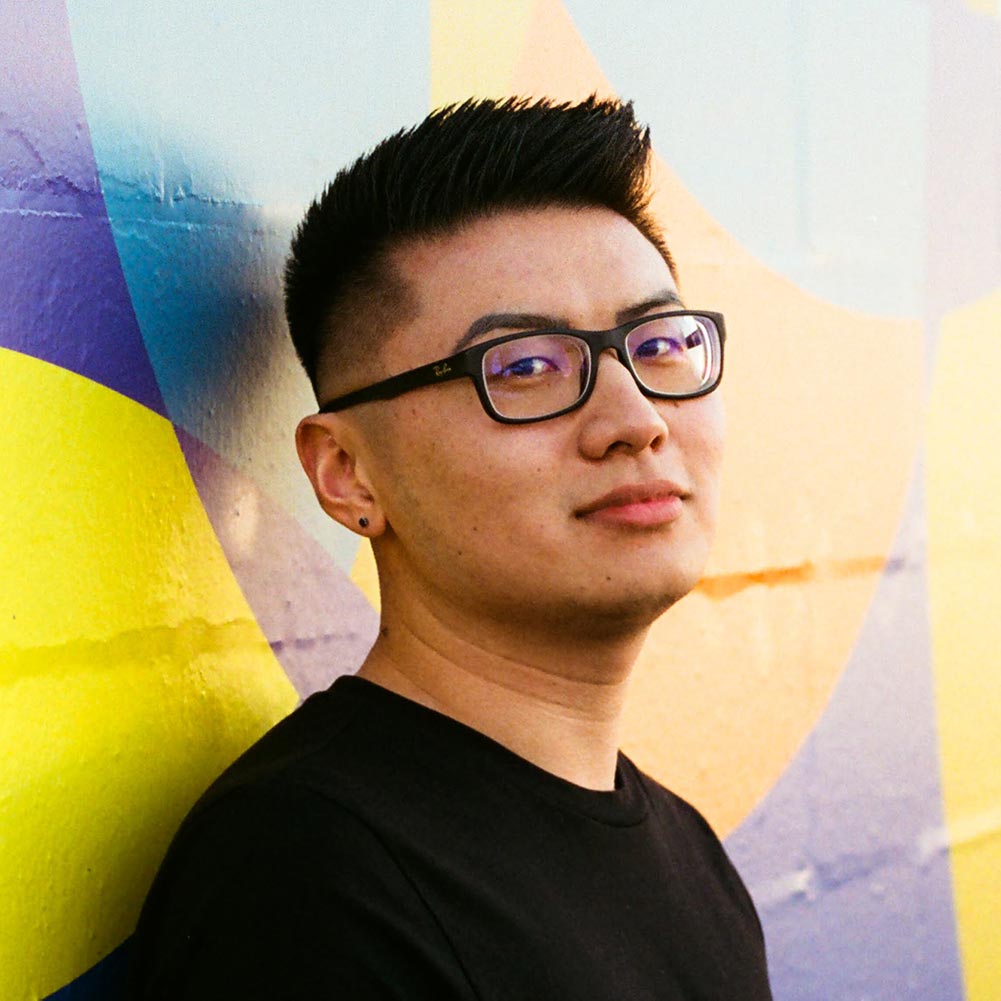
On Practice:
Do you write at the same time every day, in the same place? How would you describe your writing practice/s?
I have read about other writers with writing schedules that start really early in the day, but I love to sleep in too much. Or, writers set aside time in the evening to write, but I just love to be lazy on the couch after dinner with a TV show or movie. Instead, I find myself writing really late at night. I typically put on a rerun of a TV series or movie for background noise while I write on the couch with the laptop resting on a pillow in my lap. Even when I feel myself getting drowsy, I stay up writing a poem. I like the feeling of writing late at night. Maybe that’s because it makes me feel like I’m up late to do something I shouldn’t be doing, like a kid. LOL.
What do you do if you get stuck while writing a poem?
I don’t write it! I usually read or watch TV. Poems, for me, start with an image, a title, or a line. For a long time, a Word document will be saved with just a title before I add any lines to it. Or it will be titled “Title” for a while as I dwell on an image and find the right way to start the poem. If I’m stuck on a poem, I’ll leave it be and let it dwell in my mind a bit longer.
Take a photograph of a page from your notebook or a screenshot of an electronic file of a poem you have been recently writing or revising.
On Poetry:
Is there something you once believed about poetry that you no longer hold true? What changed?
I thought poetry had to be writing that was very hard to understand, written with big fancy words, and arranged in ways that a non-poetry reader would find difficult to understand. I think what changed was that I wrote poetry how I wanted to see and read it. And it seems that writing this way has appealed to some people, I think.
What can/does poetry change?
Maybe very little, since I feel like not many people read poetry. But for those who do, I think reading poetry can change your perspective on how a story can be told through the way lines are broken, how images are weaved into a poem, the way one image changes into another, and how the poem can be visually arranged on the page. Each of these aspects of poetry, I think, can shift your way of thinking about how narrative unfolds and a story can be told.
Is there something you now think you know about poetry that you wish you’d known a decade ago?
That it doesn’t have to look like a Shakespearean sonnet to be poetry. LOL.
On Influence & Inspiration:
What books are on your night stand, the back of the toilet, your desk?
Isabel Galleymore’s poetry collection Significant Other and Timothy Findley’s novel Not Wanted on the Voyage have been on my nightstand for probably well over a year and a half now.
Which writer/s do you (re)read the most? What does the writing do for you upon return?
Adèle Barclay is a writer that I return to quite often. I flip to a random page in one of her poetry collections whenever I feel like I want to push myself on poetic intricacy, without having it be so evident. Adele’s poems help me understand how to construct a poem with many layers to it. Her writing also challenges me to write out of my comfort zone.
Among the poets you most admire, who has influenced you the least? Why have you not been influenced by his/her work?
I don’t think any poet that I admire hasn’t influenced me. To rank them in terms of level of influence feels awkward. Or maybe I’m too afraid to come off as mean. If a poet hasn’t influenced me as much as I expected, they have at least pushed me to read and write in a way I am not comfortable with in order to expand my understanding of what a poem can be.
Describe a moment from your life when you've been overcome by how beautiful something is.
When I had the chance to see pianist and composer Ludovico Einaudi live in concert. I’ve been a fan of his music for a long time and frequently play it in the background when I write. So hearing him play live was really beautiful. I got goosebumps when he played his piece “Experience” and almost cried when “Nuvole Bianche” came on.
On Teaching:
How would you describe poetry to a four-year-old? To the non-literary family ancestor you imagine as a great source of who you are?
I’d tell them that any song they know is a poem, then sing it with them. I’d then show them a poem by one of the greatest poets of all time: Lady Gaga.
What characteristics does your ideal poem possess?
A strong image that comes out of nowhere but fits so naturally in the poem. It all boils down to imagery for me, so the ideal poem has the most detailed image ever described in the most minimalist way possible.
Do you teach poetry? If so, what are you trying to teach through poetry? What has poetry taught you?
I don’t teach poetry! But I have thought about it. Though, I would be a bit intimidated if the opportunity ever presented itself. Because I started off never really quite “getting” poetry, poetry has taught me that my idea of what constitutes a poem is just as valid as someone else’s, even if they have been writing poetry for longer than I have.
On Publishing & Themes Present/Future:
How has publishing your poems changed your writing practice, process, and product?
It’s made me be tougher on myself when writing poems. Especially since the publication of my first book, Mythical Man, my poems aren’t so quick to be finished. Nowadays, I sit on an idea, image, line, or title for a longer amount of time before writing anything that I feel has potential to go further.
Is there a poem you've always wanted to write but haven’t? If so, why are you waiting?
Maybe a long poem. But I am afraid if I start one that it will just turn into a short story, and then that will turn into a novel, and then I’ll be in way over my head. LOL.
What subjects, themes, forms, aesthetics, etc. do/will you explore in your work?
I’m tired of writing about racism and how that has shaped who I am. It’s exhausting writing about that. The themes and subjects I’m currently exploring for my next book, Dream of Me as Water, have to do with pushing against expectations and realities; that conforming to one or the other isn’t always needed in order to be seen.
On Oranges:
Oranges or apples? Why?
Either if I could sprinkle a little bit of salt on the slices.
About the Poet
David Ly is the author of Mythical Man (Palimpsest Press, 2020), which was shortlisted for the 2021 ReLit Poetry Award. His second poetry collection, Dream of Me as Water, is forthcoming with Palimpsest Press in 2022. David is the Poetry Editor of This Magazine, a member of Anstruther Press’s Editorial Collective, and a poetry manuscript consultant at Simon Fraser University’s The Writer’s Studio.
